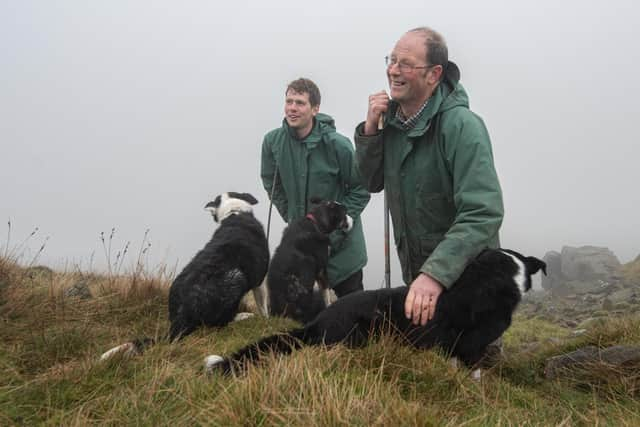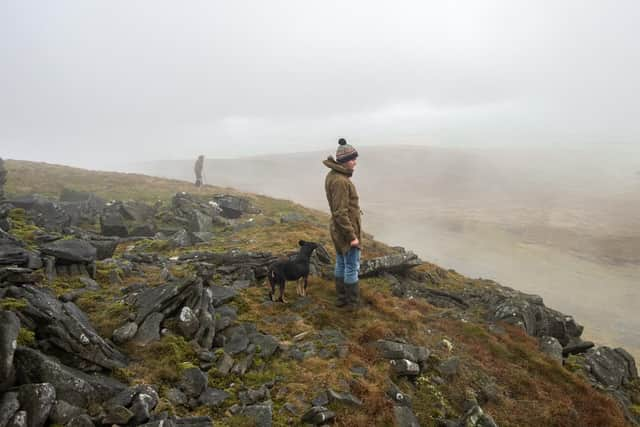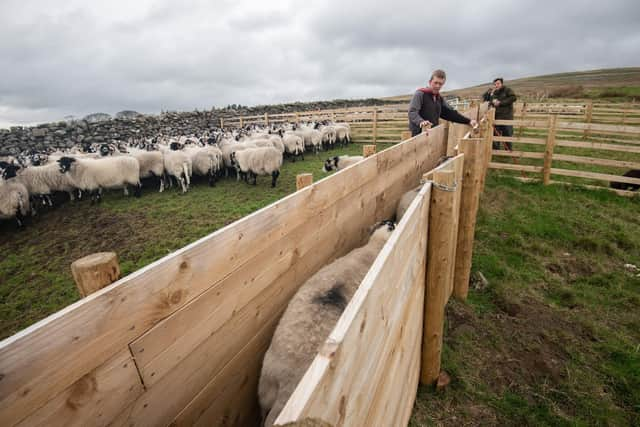Upland farmers protecting ancient powers to graze sheep on common land at Ingleborough mountain
The act of commoning dates back to 1215 with principles first set out in the Magna Carta, granting some farmers the rights to graze their animals on common land without fences or boundaries between them.
Now, as a dozen graziers and their dogs drove sheep from the west side of Ingleborough mountain last week, storytellers were there to document them in action.
Advertisement
Hide AdAdvertisement
Hide AdThis was the fifth and final gather of the year from Ingleborough Common, aimed at bringing the breeding ewes to lower ground for tupping and sorting them into new pens at Cod Bank.


Rob and Harriet Fraser from the Our Upland Commons Project are producing ‘Commons Stories’, supporting commoners to make video diaries.
Chair of the Ingleborough Graziers, John Dawson from Bleak Bank Farm, said this is raising awareness of a hugely important tradition.
He said: “I’m a big fan of the project. It’s raised the profile of what we do – it’s as simple as that. We were so long under the radar. Some aspects of commoning and the agricultural life are under valued by society.
Advertisement
Hide AdAdvertisement
Hide Ad"The question is whether people want food to be produced by the family farm. These are farms who you know will always do their best and that you can trust.


“Some lambs gathered off Ingleborough this year have already been sold into the food chain. And all those lambs sucked their mother’s milk and ate grass. It doesn’t get any closer to nature than that or any more pure than that.”
Common rights were once widespread across Europe, but have been lost in many areas as common land is enclosed. The Foundation for Common Land argues that without it, ancient knowledge will be lost while the equilibrium of these landscapes would break down irretrievably, taking with it a piece of living history.
The project, funding the construction of the £11,000 new sorting pens, also celebrates the traditions and acts of the right, which has protected landscapes for over 1,000 years.
Advertisement
Hide AdAdvertisement
Hide AdMr Dawson's son William, who was also on the gather, said the funding for the new sorting pens had boosted morale: “Often all farmers think about is that we’re constantly being weakened.


"Only about 12 gatherers use the common now. Twenty years ago that would have been about 30. As small farms have sold up because they are no longer viable, the number of gatherers has come down. So it’s nice to see investment being made in commoning.
“The pens will make the job easier and safer because the old pens had been built in the 60s and they were held together by bits of baler twine, old pallets and zinc sheets.”
Derek Twine, member champion for cultural heritage at the Yorkshire Dales National Park Authority, said: “Commoning survives in only a handful of places in the Yorkshire Dales National Park yet it is an outstanding feature of our cultural heritage.
Advertisement
Hide AdAdvertisement
Hide Ad"The viability of commoning is being further threatened during this period of agricultural transition that we are seeing in England. Supporting commons through this period of change is vital.
"One of the ways we can do that is to help people understand the benefits that come from traditional management of commons: good food, wildlife habitats, carbon sequestration and water storage.”